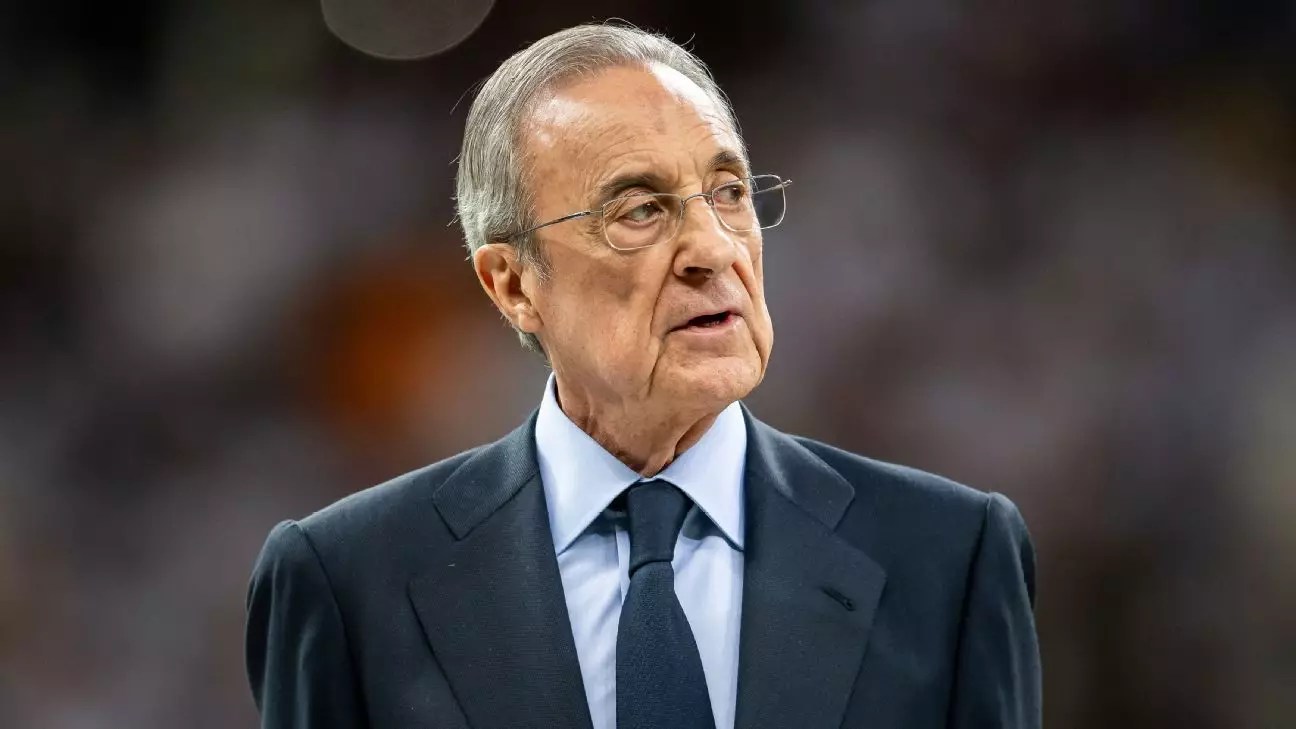In a thought-provoking address at Real Madrid’s annual assembly, club president Florentino Pérez articulated a vision for the future that includes a “corporate reorganisation.” This proposition stems from the growing concerns regarding the club’s financial security and independence in light of recent controversies, particularly a dispute with LaLiga over an investment deal that has implications for broadcast revenues. Pérez aims to enlist the support of club members to assess whether a shift in the ownership structure is essential to safeguarding the club’s financial interests.
Real Madrid’s status as one of the few member-owned clubs in Spain—alongside Barcelona, Athletic Club, and Osasuna—additionally underscores the stakes involved in this discussion. Pérez’s assertion regarding the necessity of a new ownership framework is underpinned by the belief that structural changes are needed to insulate the club from external pressures and financial threats. As he stated, “Our club should have a structure which protects us as an institution.” His comments highlight a rising sentiment amongst club leadership that the current framework may no longer be sufficient in protecting their assets against potential volatility in the football market.
The Implications of LaLiga’s CVC Deal
Central to Pérez’s argument is the dispute with LaLiga regarding the CVC investment deal. Other clubs in Spain have benefited from a substantial infusion of €2 billion, specifically aimed at leveraging future broadcast income. However, Pérez views this as a redistribution of wealth that could jeopardize Real Madrid’s financial preeminence. His insistence that the club’s income should remain distinctly its own speaks volumes about his vision for an independent Real Madrid, free from perceived intrusions by third parties or regulatory bodies.
The ramifications of this investment deal are profound, prompting Pérez to advocate fiercely for a system that would ensure the financial viability of his club. This stance underscores the competitive tension in Spanish football, where the balance of power is continually shifting, often favoring clubs willing to embrace new financial models.
Adding an emotional undertone to his address, Pérez did not shy away from expressing his discontent regarding the recent Ballon d’Or results. His disappointment over Vinícius Júnior’s omission from the award nominations echoes a broader frustration prevalent among fans and players alike. Pérez’s criticism, especially directed at the journalists involved in the voting process, reveals a deep-seated belief that the selection criteria are flawed and inadequately reflective of players’ contributions on the pitch.
He stated, “The Ballon d’Or should be independently organized, and it should be in the hands of people who are recognized.” This calls into question the integrity of how such accolades are awarded and reflects a desire for a more meritocratic system where true talent is duly recognized, thus solidifying his position as an advocate for transparency and fairness in football.
Pérez has consistently leveraged his platform to voice opposition to UEFA and its handling of European football, particularly regarding the Champions League’s evolving structure. By equating UEFA’s outdated practices with the historical decline of Blockbuster versus the ascendency of technology-driven Netflix, he lays bare his strategy for modernizing the sport. His appeal for a radical overhaul signifies a critical juncture in football, where decision-makers must adapt to emerging trends or risk being left behind.
“We want to embrace new technology … There’s a real opportunity for a change of direction, to restore football’s greatness,” Pérez remarked. This call to arms extends beyond rhetoric—indicating that revolutionary changes are necessary for Real Madrid and, by extension, for the footballing landscape as a whole.
Finally, Pérez addressed the recent decision to postpone concerts at the renovated Santiago Bernabéu Stadium following complaints from neighbors about noise. He minimized the financial implications of this choice, revealing that concert revenue represents a meager 1% of the club’s budget. However, he acknowledged concert events as integral to community engagement and viewed the matter with a forward-thinking lens.
Pérez’s speech served not only as a manifesto for protecting Real Madrid’s interests but also as a broader commentary on the future of football. His vision highlights the necessity for adaptability in an industry facing numerous challenges. As the landscape of football continues to evolve, the need for robust and forward-looking structures becomes increasingly vital for clubs seeking to uphold their legacy while ensuring their financial viability.


Leave a Reply